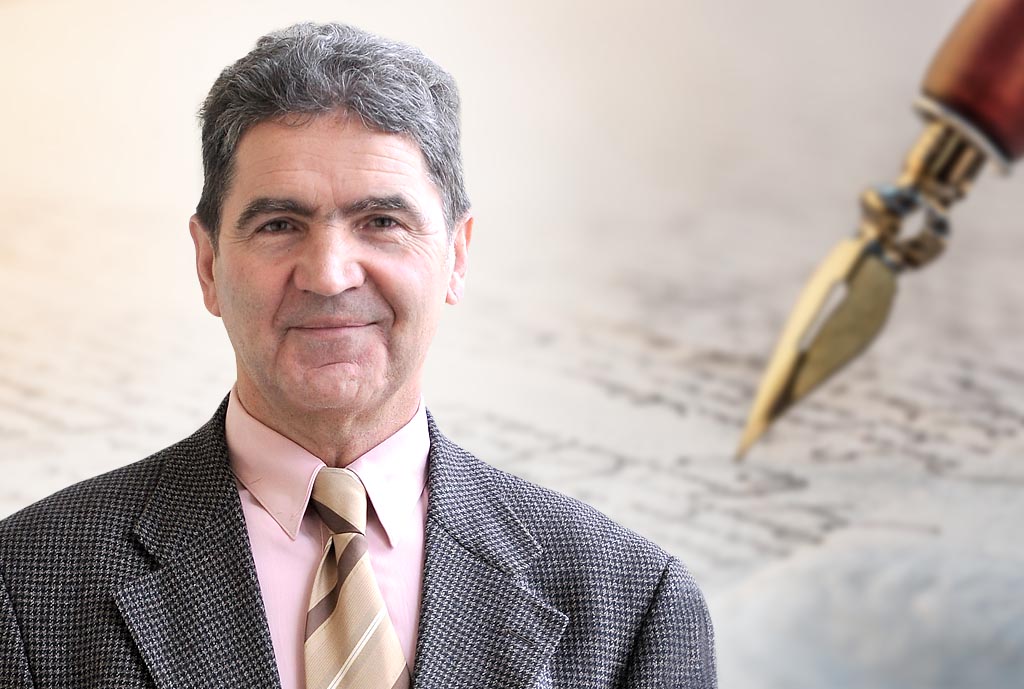By: Dr. Janez Juhant
Revolutionary practice has been characterised by the exclusion and suppression of those who think differently. No one was safe from the oppressors, so it is surprising that some people forget or ignore such inhumane behaviour and even pay homage to those who ordered it or to the symbols in whose name it was carried out. The Socialist Federal Republic of Yugoslavia (SFRY) had the infamous Article 133 of the Criminal Code, which subjected dissenters, especially critics of the authorities, to torture and imprisonment. On the 60th anniversary of Archbishop Vovk’s death, it is important to remember how he and others were interrogated and suppressed. This maltreatment and the arson attack on a train near Novo Mesto were also responsible for the early death of this determined shepherd.
The authorities did not tolerate any criticism, but now democratically elected representatives in parliament and the government are repeating discarded patterns and attempting to silence those who dare to criticise the authorities. Criticising such behaviour is not hate speech but rather an encouragement for more cooperative and compassionate treatment of all citizens by the ruling powers, including those with whom the authorities disagree. Violating the constitution, democratic laws, or regulations is not a sign of a rich and successful society. Instead, it is advocating for the rights of all people, especially the disadvantaged and those who struggle to have their voices heard. The democratic parliament and all other state and civil society institutions should respect critical speech, empathise with those who think differently, and listen to their reasons. Therefore, it is surprising that the director of ZRC SAZU responded to criticisms of this research institution, which prides itself on being an academy, by suggesting the abolition of the civil cultural institution that criticised him.
The exclusion of those who think differently reflects fear of the truth. In families, communities, and at the local and national levels, human and social capacities are promoted through cooperation, a willingness to share life, and listening to others, including those who are different. Creative forces that enrich society and individuals are strengthened through open dialogue and negotiation. Signs of an open and development-oriented society are not the violent elimination of individuals and groups, but the exchange of opinions and reaching agreements. People who fear each other and are unwilling to communicate will have difficulty succeeding. The invention of hate speech is a sign of a weak and unproductive society. If we build on mutual trust and cooperation, people will not feel attacked or offended by criticism, as it leads to better collaboration and progress in personal and societal life. The previous regime systematically undermined trust among people through punitive and violent measures, considering them merely as cogs and forcibly binding them to the Procrustean bed of false equality and justice. Even now, we will not build trust through prohibitions (such as hate speech), but through openness towards others, empathy within families and local communities, through the media, and in the broader socio-political public. Low levels of political culture do not entail silencing critics or introducing so-called hate speech, but rather engaging in open, honest, and humane discussions and confronting the problems of the country and its people. Those in power hold the scissors and the canvas, and it is their responsibility to actively promote this process for the well-being of all and to demonstrate that they are politicians of humane and empathetic nature, driven by statesmanship rather than personal interests. However, certain actions such as the discontinuation of commemoration for war and revolutionary victims, the closure of the Museum of Independence, and a lukewarm attitude towards the burial of these victims do not confirm this. Nevertheless, I believe that you will strive to prove to yourselves and to us that you are capable of this.
Democracy is about inclusion, not division; it is about solving problems, not ruling, or plundering the state. The foundation for this is open and decent discourse, which we constantly cleanse through tolerant and engaged dialogue, thereby strengthening human closeness, serving the interests of citizens, and realising justice, order, and peace among us. The process starts in families, continues in schools, and expands into the public sphere. Confucius established the principle of TAO, “the great law of creation, order, justice, equality, and compassion”, as it leads to harmony in creation and among people. Free speech is the starting point and foundation of compassion, which is why promoting free discussion is the responsibility of all, especially those in positions of authority. It is a sign of self-confidence and trust in others and a characteristic of mature, independent individuals. Educational and other professions emphasise the importance of collaboration. People are increasingly participating in interpersonal and international informal and formal frameworks. The logic of exclusion, however, is not only a consequence of totalitarianism but a constant trap in trying to dominate others through violence, and it is a sign of psychological immaturity and weakness. Although there has never been as much talk about collaboration, democracy, and inclusivity, we must cultivate these values. Trust, empathy, and a willingness to engage in dialogue are the means to that end. Politicians, educators, and scientists must set an example of such attitudes due to their influence. Even if a wise person may disagree at times, they will acknowledge the truth, justice, or better reasoning of others. Building a good shared future is achieved through the ability to empathise with others. Blessed is the one who trusts in the Lord, for they will find it easier to trust in humanity and not be swayed from the truth and justice.
